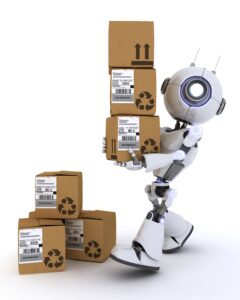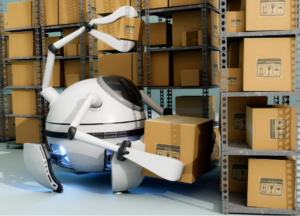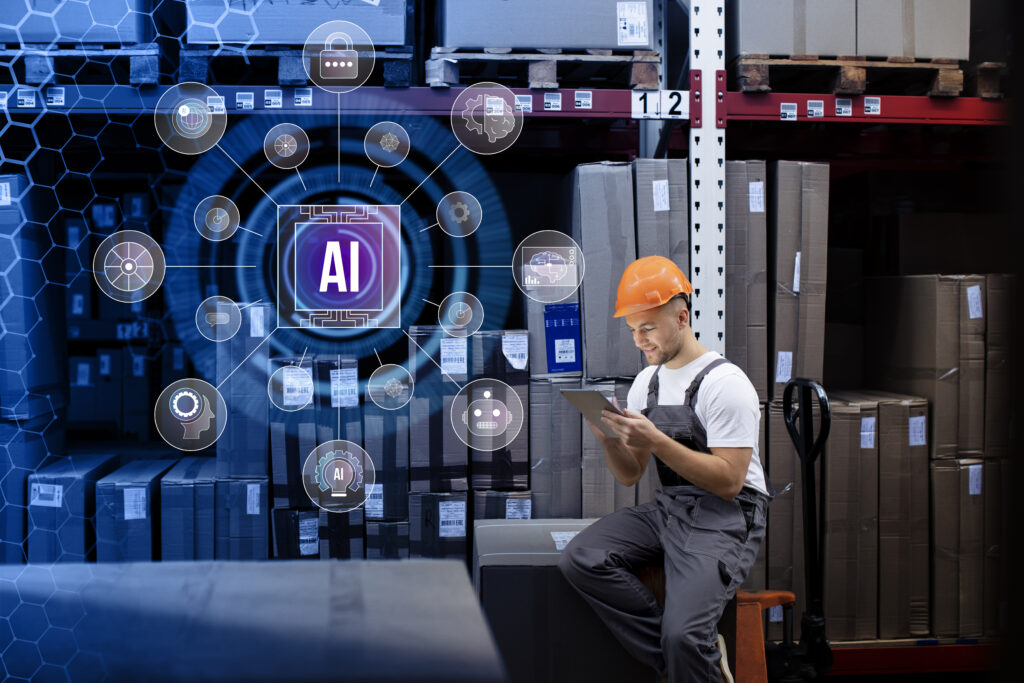AI is being utilized by supply chain professionals to enhance worldwide operations and tackle significant obstacles.
Throughout the entirety of the supply chain, there is widespread utilisation of artificial intelligence-enhanced solutions with the aim of enhancing efficiency, addressing the challenges posed by a global scarcity of workers, and identifying safer and more secure approaches for transporting commodities.
Artificial intelligence (AI) applications are prevalent across various domains ranging from industrial manufacturing settings to the final stages of client interaction. Organizations engaged in the transportation of goods employ Internet of Things (IoT) devices to effectively monitor the state of their valuable vehicles and other related equipment, while also ensuring constant surveillance of their locations.
Automatable Supply Chain Tasks

The implementation of artificial intelligence (13AI) in supply chain operations has the potential to yield significant time and cost savings. Business enterprises can derive advantages from the implementation of automation in specific supply chain functions, such as:
Warehouse robotics:
Organizations can enhance efficiency and productivity by implementing automated systems and employing specialized software to manage material handling and several other operational operations.
IoT:
Automation can also facilitate the integration of Internet of Things (IoT) technologies which encompass hardware devices that are equipped with sensors, processing capabilities, and software enabling connectivity with other devices or networks for data transmission or reception.
AI/ML:
Automated supply chains have the potential to acquire knowledge from previous user engagements and proactively anticipate forthcoming interactions through the utilisation of artificial intelligence (AI) and machine learning (ML) techniques.
Predictive analytics:
Predictive analytics encompasses many techniques like data mining, predictive modelling, and machine learning which collectively facilitate the automation of supply chains.
The digital automation of procedures.
The implementation of DPA enables the automation of many software-based supply chain activities.
Optical Character Recognition (OCR):
Optical character recognition (OCR) confers advantages to the supply chain.
Data entry automation:

Within the realm of the supply chain sector, the process of data entry is a laborious task that can be rendered obsolete through the implementation of automated systems.
Artificial Intelligence (A.I.) Supply Chains: Four Advantages
Incorporating AI advancements into corporate strategies is becoming increasingly common. Risks in a company’s infrastructure can be found and identified with the use of AI.
Here are some other gains from implementing AI into supply chains:
Increases productivity:
Automation and other forms of artificial intelligence save businesses time and effort, allowing workers to concentrate on more strategic attempts.
Constant visibility:
Artificial intelligence tools can work nonstop if necessary for a business.
Used by experts and beginners:
Employees who aren’t savvy with the company’s digital tools might nevertheless benefit from AI’s augmentation of their abilities.
Decision-making easier:
AI streamlines decision-making, allowing for faster processing and better outcomes.


